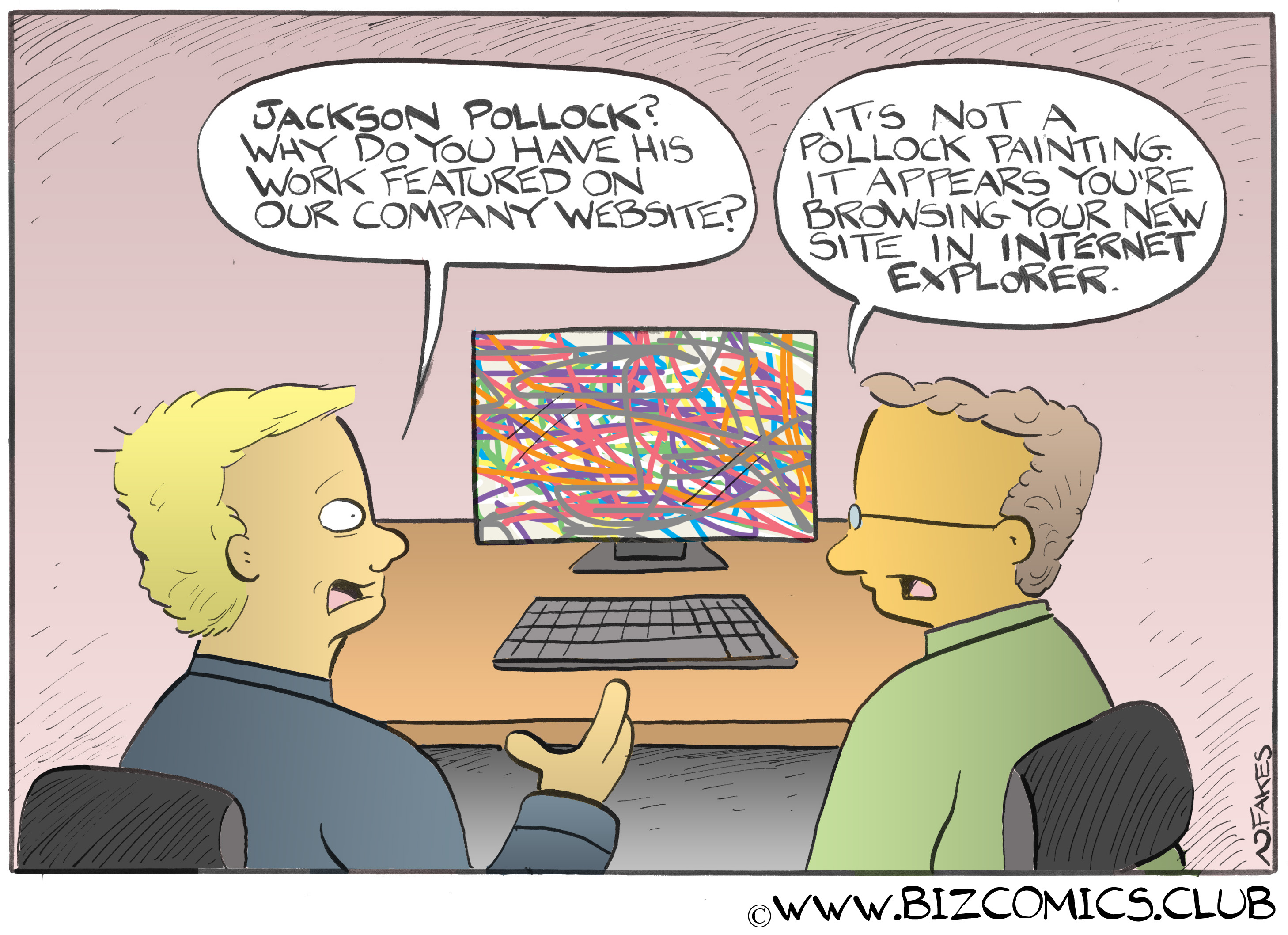When we develop websites for our clients, we diligently test compatibility with all manner of browsers — Firefox, Chrome, Opera, Safari, Torch, Maxthon, SeaMonkey, Avant, Huey, Dewey, Louie, and Popeye. When we’ve confidently determined the sites render optimally on all browsers — running on desktop, laptop, and mobile devices — we put on our welder’s masks, strap ourselves into chairs we’ve bolted to the floor, take mega-doses of Dramamine, and bring them up on Microsoft’s browsers: Internet Explorer (IE) and its new kid brother, Edge.
If the site’s fairly simple, the effect is like looking at an eye chart, through a prism, with a really bad hangover. If the site’s fairly complex, looking at it in IE/Edge can be like watching film of an explosion at a paint factory in 3D and IMAX while rocketing through the BarfMaster Roller Coaster course at Seven Flags Amusement Park. Either way, it presents challenges.
Have you ever wondered why that is? So have we. This is all we could come up with:
- Microsoft has a morbid fear of web developers becoming complacent. As a result, they pack every new version of IE/Edge with enough quirks and quandaries to keep web developers from ever finishing anything, let alone getting bored.
- Microsoft doesn’t see technological progress as being linear. Rather it sees it as more of a circular firing squad, in which each successive step is killed off, taking coherence, cohesiveness, and continuity with it.
- Microsoft would prefer to be in the Brain Teaser Business, rather than the software business. That’s why it forked its own technology (Trident), rather than create something new; rebranded that fork as Edge while keeping the existing IE logo (with minimal modification); continues to chase behind Webkit; and expected anyone to make sense of it, let alone have it render coherently.
- Microsoft believes its users share its apparently huge appetite for risk, which is why it bundles Internet Explorer and Edge with its operating systems. The workforce, after all, can’t be bothered to work on systems without any bugs, viruses, malware, spyware, Trojan horses, and myriad malicious mischief.
In any case, if you’re a web user — and unless you’re a fan of abstract impressionism — you might consider a browser that provides a more visually coherent user experience.


I like Jackson Pollock because each piece of his work looks different every time I view it.
I gotta admit, Jeff, I’m a Pollock fan as well. A lot of people don’t “get” his art, but I’ve always enjoyed it. It was fun coming up with this cartoon.
Awesome page with genuinely good material for readers wanting to gain some useful insights on that topic! But if you want to learn more, check out YH6 about Airport Transfer. Keep up the great work!